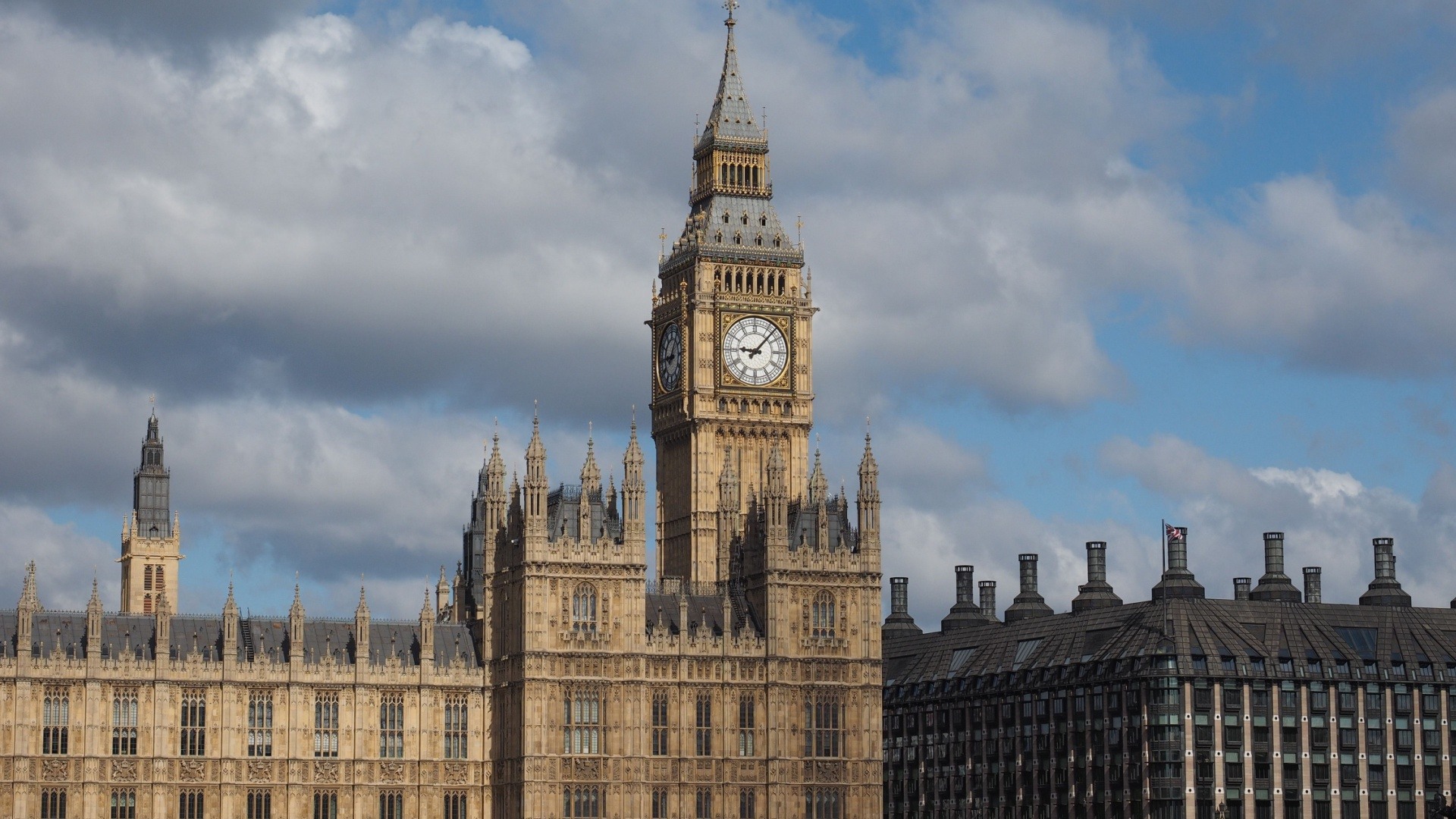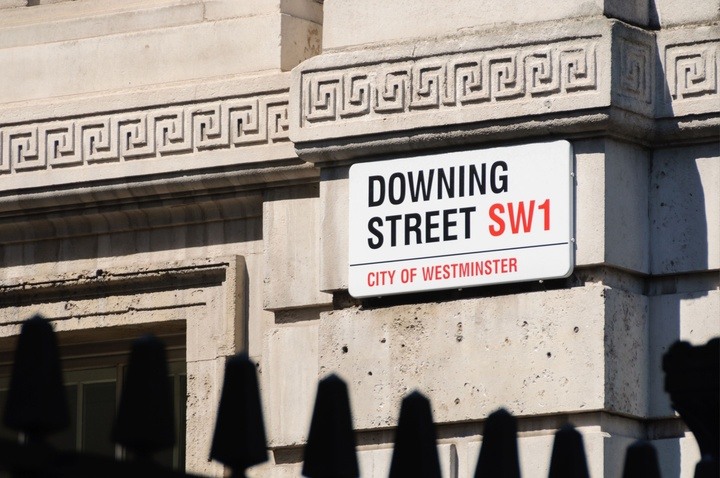Weekly Briefing: UK Property Prices, Private Capital, £10 Billion Investment Deal & New Trump Tariffs
In this week’s edition of the GCV Weekly Briefing, we delve into the latest trends in the UK housing market, new recommendations for boosting pension fund investments in private capital, a significant UK-Asia partnership worth £10 billion, and the impact of new import tariffs set to affect global trade.
These stories provide critical insights into an incredibly active economic landscape, highlighting emerging opportunities and challenges for investors and businesses alike. Read on for a deeper understanding of the key stories.
UK Property
UK House Prices Stagnate Amid Stamp Duty Deadline
- The UK housing market saw stagnation in March, with the average home price remaining at £271,316, following a 0.4% increase in February. While annual growth held at 3.9%, there were stark regional differences—Northern Ireland surged 13.5%, its fastest pace since 2021, while London had the weakest growth at 1.9%.
- This expected slowdown coincides with the expiration of the stamp duty holiday at the end of March, prompting a rush of completions beforehand. Nationwide’s Chief Economist Robert Gardner noted that such patterns are typical following tax breaks, as buyers accelerate purchases to avoid additional costs, temporarily softening demand.
- Mortgage approvals fell to a six-month low in February, as many prospective buyers had already moved to complete transactions before the deadline.
- Financial markets expect two Bank of England rate cuts this year, with a 68% probability of a reduction in May. A lower rate environment could ease borrowing costs, boosting affordability and gradually lifting demand as the year progresses.
- Tom Bill of Knight Frank anticipates a market reset in April, with demand rebalancing and increased supply exerting downward pressure on prices. He expects activity to recover by summer but warns that factors like erratic US trade policy and employer national insurance changes could prolong higher borrowing costs.
- “Buyers coming back into the market with a re-levelled playing field will find that supply is strong, which should keep downwards pressure on prices,” said Bill, highlighting the potential for affordability improvements in the near term.
UK Investment
Pension Funds Urged to Invest More in Private Capital
- A panel of pension and private capital experts has proposed measures to increase UK defined contribution (DC) pension fund investments in private capital. Among their key recommendations is a call for the Financial Conduct Authority (FCA) to review the long-term asset fund (LTAF) framework once more funds enter the market, ensuring regulatory support for such investments.
- LTAFs are designed to help pension funds and individual investors allocate capital to long-term, illiquid assets more easily. Major asset managers, including Aegon Asset Management and M&G Investments, have already launched private credit LTAFs, demonstrating growing industry interest.
- The panel also pushed for regulatory reforms, urging the FCA to revise ‘permitted links’ rules to expand investment options for DC default schemes using life insurance platforms. These rules currently limit investment in private capital, which some industry stakeholders argue hampers diversification efforts.
- In addition, the panel called on the UK government to support a new programme designed to boost investments into venture capital. The initiative includes a private capital fund directory, an investment marketplace tailored for DC schemes, and a fund-of-funds vehicle to streamline access to smaller private capital firms.
- Pension funds have already begun increasing their private market allocations to reduce reliance on public equities while benefiting from stable, fixed returns. Phoenix Group, for example, has committed £2.5 billion over the next three years through Future Growth Capital, a joint venture with Schroders aimed at deploying £10-20 billion into private markets over the next decade.
- “Government has an opportunity to build on this growing momentum with a new programme informed by what both pensions and private capital leaders believe will make a difference,” said Kerry Baldwin, chair of the expert panel, emphasising the potential for pension funds to drive growth in UK businesses while delivering stronger returns for savers.
UK Secures £10 Billion Investment Deal with Singapore’s OCBC Bank
- The UK government has signed a £10 billion investment agreement with Singapore’s Oversea-Chinese Banking Corporation (OCBC), one of Southeast Asia’s largest banks, aiming to direct capital into priority growth sectors such as energy, infrastructure, and real estate by 2030.
- This agreement follows the UK's ratification of the Comprehensive and Progressive Agreement for Trans-Pacific Partnership (CPTPP), a major trade deal expected to add £2 billion to the UK economy annually. The partnership with OCBC strengthens UK-Asia Pacific collaboration, supporting the government’s industrial strategy for long-term economic growth.
- Under the newly expanded Office for Investment, OCBC will work with the UK government to position Britain as a prime investment hub for businesses and investors from Asia.
- OCBC’s UK operations have expanded significantly, with its London branch now the largest in its global network. The bank has been particularly active in financing projects across renewables, energy transition, real estate, and infrastructure—key areas of focus in the UK’s industrial strategy.
- Minister for Investment Poppy Gustafsson described the deal as a “major vote of confidence in the UK economy,” emphasising that the investment would not only support infrastructure and clean energy but also create high-skilled jobs across the country.
- “The UK and Singapore share historically deep ties, and OCBC is proud to play a part in further strengthening this relationship,” said Elaine Lam, OCBC’s Head of Global Corporate Banking, underscoring the long-term commitment to expanding UK-Asia investment opportunities.
Global Trade
Trump’s New Tariffs Set to Disrupt Global Trade
- The US has announced sweeping new import tariffs, with President Trump imposing a baseline 10% tax on all imports starting April 5. The move, enacted via executive order, aims to reduce trade imbalances and protect American jobs and manufacturing.
- In addition to the blanket tariff, the administration is targeting 60 specific countries deemed “worst offenders” with additional reciprocal tariffs, set to take effect on April 9. These nations are accused of imposing high tariffs on US goods, using non-tariff barriers, or otherwise restricting American trade.
- While the US government claims the tariffs will strengthen domestic industry, there are widespread concerns over potential economic disruptions. Businesses importing goods will bear the initial costs, but many are expected to pass these expenses onto consumers, potentially raising prices across various sectors.
- Economists warn that the tariffs could spark retaliatory measures from major trade partners, further straining global supply chains. Previous rounds of tariffs under Trump’s presidency led to countermeasures from China and the EU, escalating trade tensions and impacting industries reliant on global imports.
- The policy shift comes amid a complex international trade environment, with the UK and EU seeking to stabilise economic ties and the US election cycle driving protectionist rhetoric. While some manufacturing sectors in the US may see short-term gains, the long-term effects on consumer prices and global trade relationships remain uncertain.
- “These new import taxes will send economic shockwaves around the world,” said a White House official, acknowledging the widespread impact but arguing that the measures are necessary to “address trading imbalances and protect American jobs."
Final Note
This week’s briefing shines a light on pivotal shifts across the global economic landscape—from the stagnation in UK house prices and regional disparities, to the £10 billion UK-Asia investment deal and the potential ripple effects of new import tariffs.
With pension fund leaders pushing for greater access to private capital and certain trade partnerships strengthening, there are clear signs of evolving investment opportunities and market dynamics.
However, as we look to future weeks and months, all eyes will be on how these trade trends unfold.
%20(3)%20(2).jpg)






